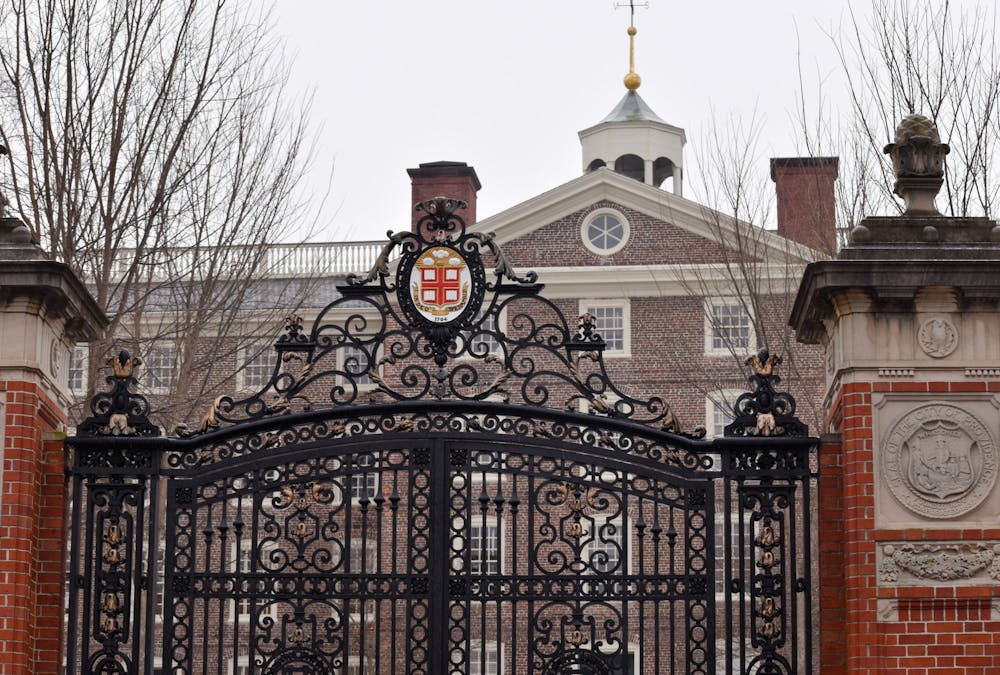All Providence Public School District students admitted to the University’s pre-college programs will receive full scholarships beginning this summer, the University announced Feb. 16.
The scholarship applies to all of the University’s summer pre-college programs, wrote Joi-Danelle Whitehead, director of diversity, equity, inclusion and access for pre-college programs, in an email to The Herald. All direct and billable costs are covered by the scholarship, which does not include travel and other incidental expenses, she added.
The University’s pre-college programs include Summer@Brown, which allows students to take non-credit courses in a variety of subjects for one to four weeks, the Brown Leadership Institute, environmental leadership programs and a handful of other programs.
While PPSD students have been eligible for need-based scholarships in previous years, the decision to expand them to cover full tuition and fees for all PPSD students is new, according to Whitehead.
“With the need-based model, we often found that students were not sure or convinced that they would receive the scholarship, or there was reluctance to provide financial information for a variety of reasons,” she wrote.
Approximately 95% of PPSD students who attended pre-college programs in summer 2022 received scholarships, Whitehead wrote. She added that she expects the new scholarship model to increase PPSD student participation after a dip in enrollment following the COVID-19 pandemic.
“These full scholarships for summer programs complement existing partnerships between Brown and Providence’s schools and mark the most recent development in a PPSD/Pre-College collaboration that launched in 2016,” wrote University Spokesperson Brian Clark in an email to The Herald.
That collaboration “has nearly tripled the number of Providence students enrolled in those programs,” he wrote.
Nkolika Onye, chief of equity and belonging for PPSD, said she was excited about the new scholarship.
“Just being on a college campus in a post-secondary atmosphere definitely has a great effect on students in general, particularly those who have been historically marginalized,” she said.
“Students of color (and) students who are from disadvantaged socioeconomic backgrounds can always benefit from quality programs that will help support their thinking and their pathways to success,” Onye said, noting the high proportion of students who receive free and reduced-price lunch in the district, more than 85% as of 2017. The U.S. Department of Education defines schools with more than 75% of students on free or reduced-price lunch as “high-poverty schools.”
“Not having to think about funding is huge,” Onye added.
District officials are planning “to make sure that in every way, shape or form possible we’ve communicated (the scholarships) widely to our district and to our families,” Onye said. “It’s a big deal.”
To publicize the scholarships in schools, the University is working with PPSD partner organizations, giving in-school presentations and putting up posters and other materials with details and QR codes that link to the pre-college website, Whitehead wrote.
Other collaborative programs between Brown and PPSD include Brown Summer High School, which brings more than 150 students from Rhode Island and Southeast Massachusetts to campus where they take classes and have “assemblies and panels focused on college,” according to the program’s website. Other recent initiatives include a new STEAM Room at Vartan Gregorian Elementary School, Clark wrote.
The goal of the summer programs is to “help prepare students for post-secondary education regardless of where they may enroll or what path they choose to pursue,” Clark wrote.
While Onye said she is excited about the scholarship, “one of the things we forget … is that it’s not just about economic equity,” she said. “Even with support financially, that does not necessarily mean we're really bringing equity to the playing field.”
“We want the end result to be eventually equity in experience, equity in acceptance,” Onye said. “This is great for a pre-college program, but we would love to see more efforts to really provide more pathways to equity in admittance to colleges and universities, and also to high-powered career opportunities that may occur right after high school.”
In 2021, the University announced an initiative aimed at “prepar(ing) Providence public school students to enter selective four-year institutions, in addition to bringing more PPSD students to the University.” The program is slated to begin this fall, The Herald previously reported.
In addition to scholarships for PPSD students, the pre-college programs offer scholarships on a need-based basis for all applicants on a first-applied, first-awarded basis, as well as specific scholarships for dependents of qualified University employees and for students affiliated with an organization that the University’s pre-college programs partner with.
Clarification: A previous version of this article did not include fill information about scholarships for students who do not attend PPSD. The article has been updated.





